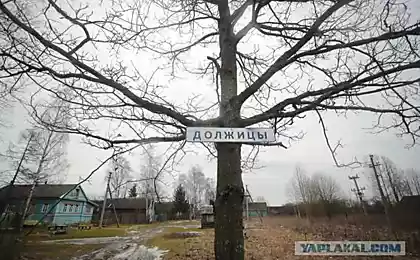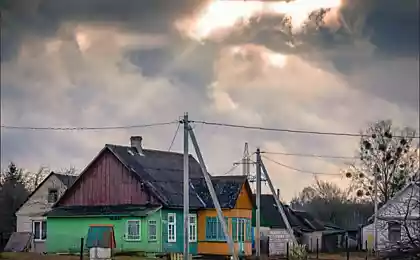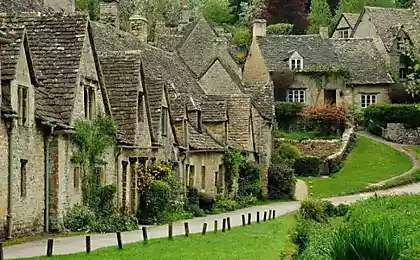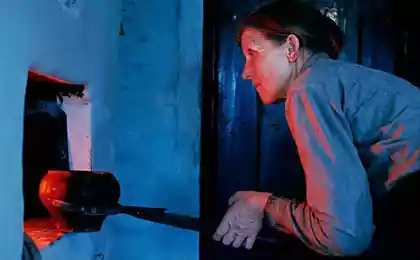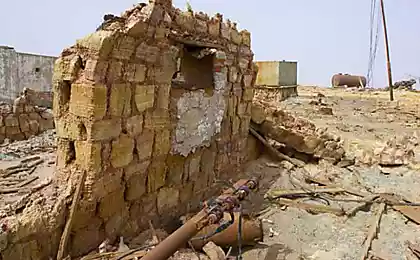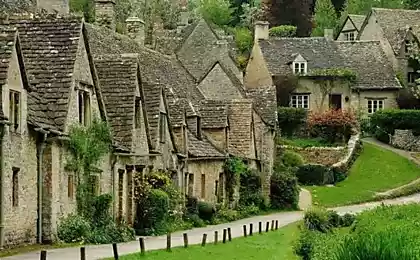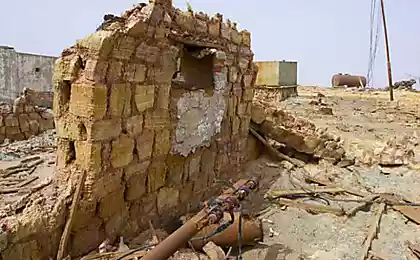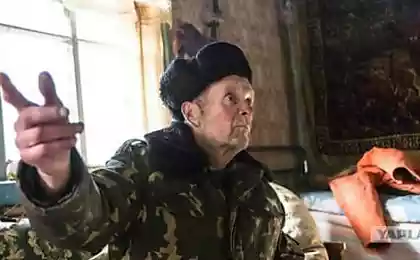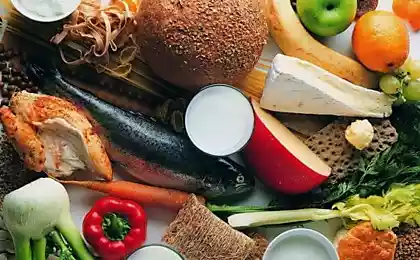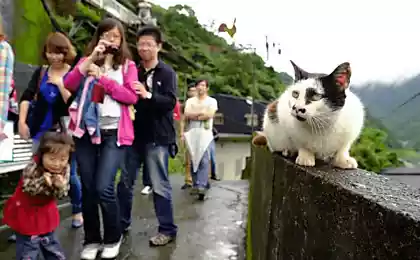1008
Belarusian village and its past inhabitants
In winter, a heavy snowfall, the villagers French Rowing and Canoeing Zafrantsuzskaya were completely cut off from the outside world for several days. Three grandmothers, this does not scare for his long life, they have experienced a much more terrible things. Would not these "natives", clinging to their ancestral homes, and on the map Belarus will be another two smaller settlements.
Now, these villages are picturesque, but frankly pathetic. In each of them there was one street where several houses inhabited diluted sad sight of rows of abandoned huts. But if you look closely, you can see the details, reminiscent of the life that is here once in full swing: a broad road that leads to nowhere, abandoned orchards here and there growing in the open field, rare, overgrown grass foundations.
And there are a lot of cats. A lot.
31 photos and text
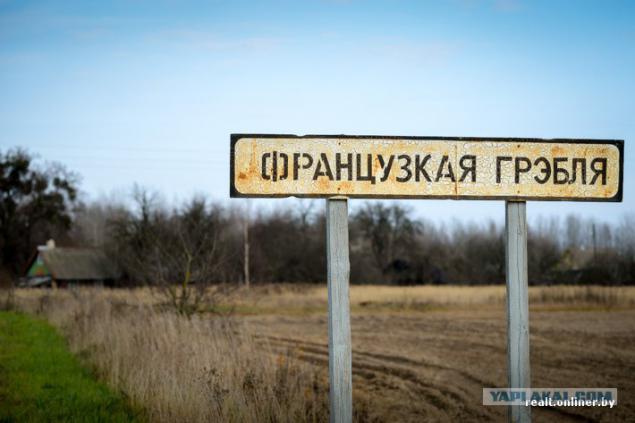
02
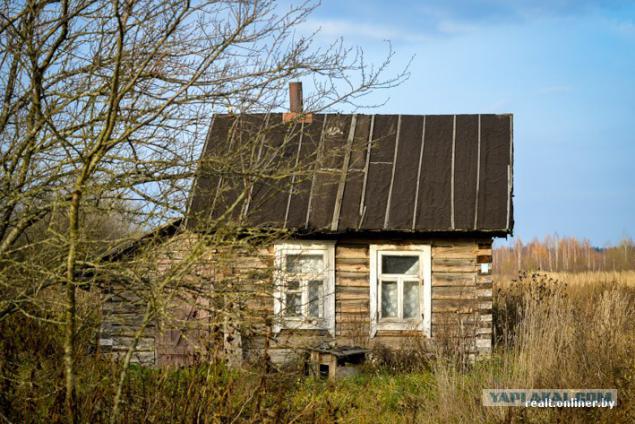
03
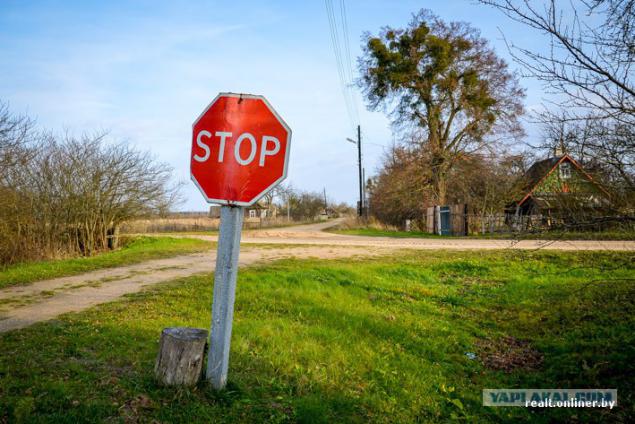
04
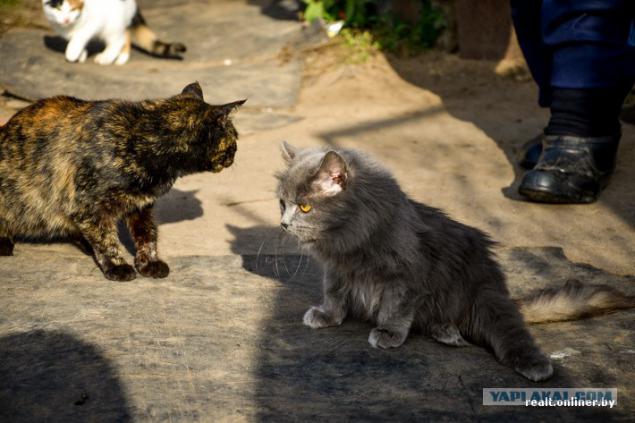
Cottagers
Near one of the houses, painted with fresh paint, with a front garden, it is worth a few rows of hives. The plot is "tweaked" to shine - live here "gardeners". We were out the hostess, Olga Antonovna, invites the hut and tells where the village there was such an unusual name.
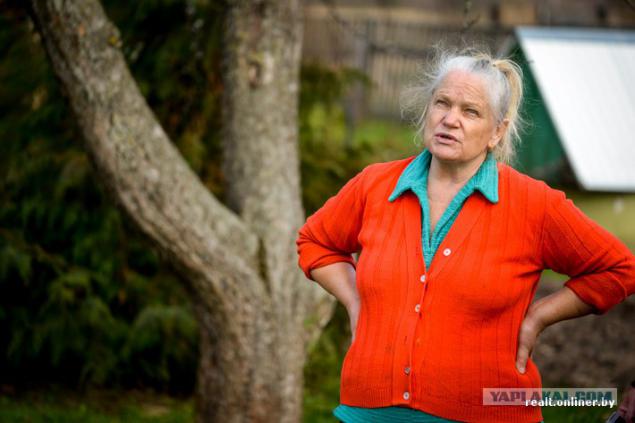
- The street that runs in front of our house, and there is that the French rowing, which is named in honor of the village - Olga Antonovna. - Here, in 1812, was a Frenchman, and he had to run through the swamp causeway, or in Belarusian - rowing. Managed to build five kilometers, the road was good, and the name stuck.
The village used to be a big, now here are mostly vacationers live. Here we are, for example, come to the family home for the summer, and in winter back - to Minsk. But, on the other hand, I was born in this village. So, we can say, spot. The first memories of childhood float - a lot of people and animals. Just behind our vegetable garden, where the field now, were three calf house and stables.
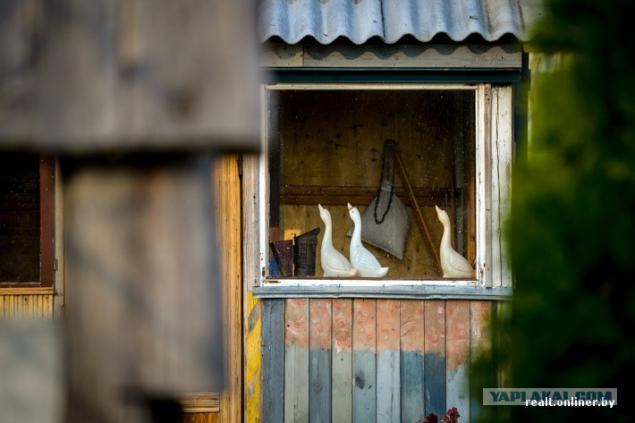
07
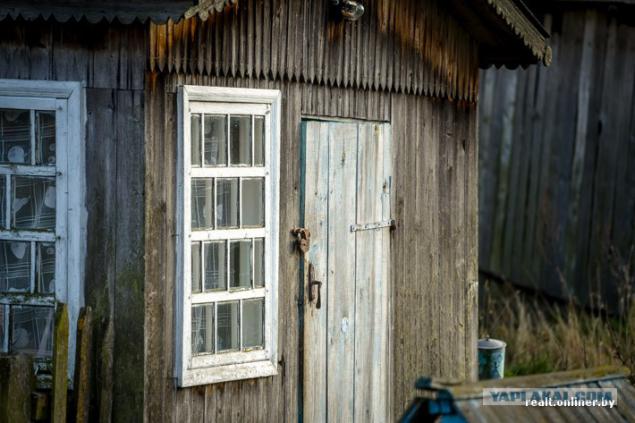
08
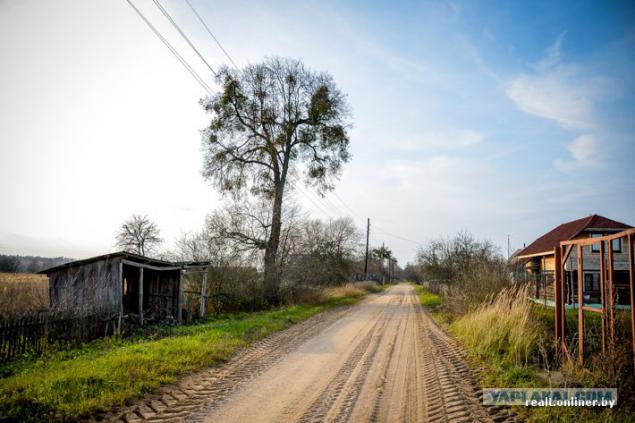
My grandfather and grandmother that lived here before the arrival of Soviet power were considered rich. Each had 30 acres of land. My mother, in a village house, even worked as a hired maid. That's how people lived, worked, and leave the village anyone had not occurred.
Olga Antonovna takes us on a wide straight as an arrow, road shows - that is, rowing. In the distance, reviving deserted landscape, haunting little man with a metal detector. Black archaeologists in recent years in the village of frequent visitors - looking for the remains of the splendor of Napoleon's army.
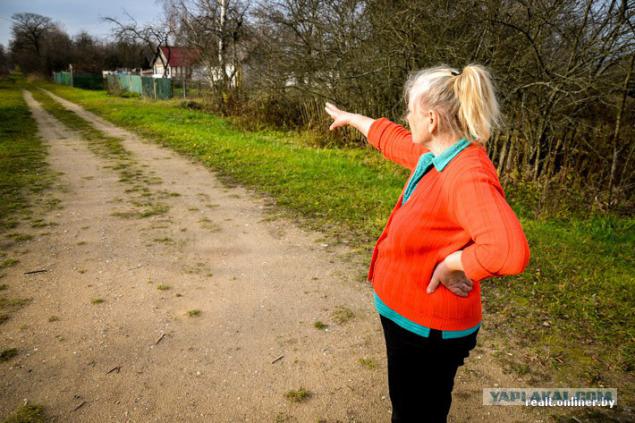
10
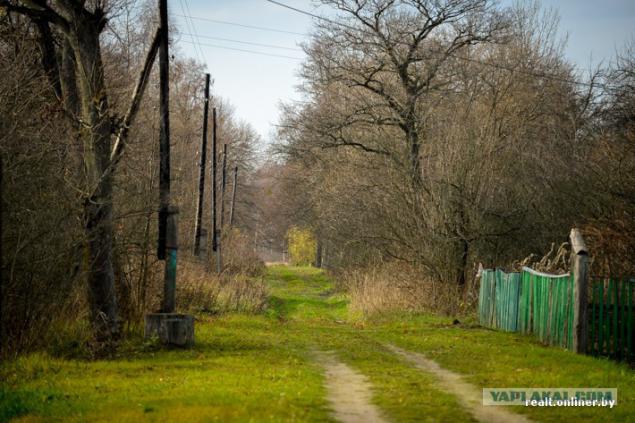
11
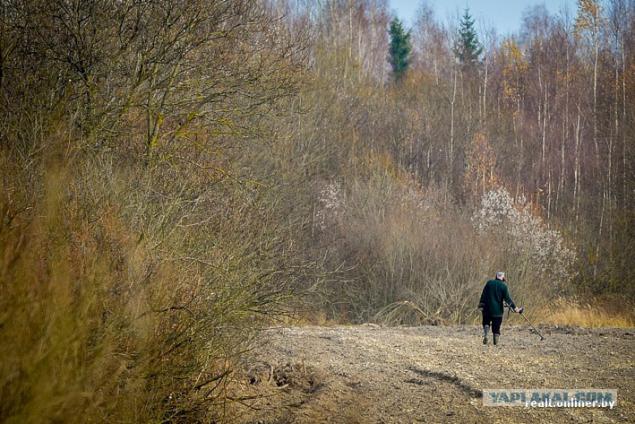
Summer Resident, a native of the French Rowing, sighs: "In 20-30 years, the village has no expectations. The remaining 70 grandmothers far, would not they, and all ... Maybe turn this place into a village, where for the season will come to Minsk residents. Now here many homes - those that stronger - already bought. But it is, as they say, is another story ».
Children of War
- The village that existed before the French. I am 80 years old, my parents are here, grandfathers, great-grandfathers - says grandmother Zina. - Previously, it somehow differently named, but no one really knows how now - French Rowing. As the war began, I was 10 years old, I remember everything.
Grandma Zina recalls the history of his homeland, sitting in the kitchen in a small cozy hut, which stands on the outskirts of the village. As soon as she finished a big deal - chopped 2 trailer for the winter firewood, all the autumn had to spend on it. To celebrate, melted bath, warm up, so journalists, walk along the main street half a day, did not immediately noticed.
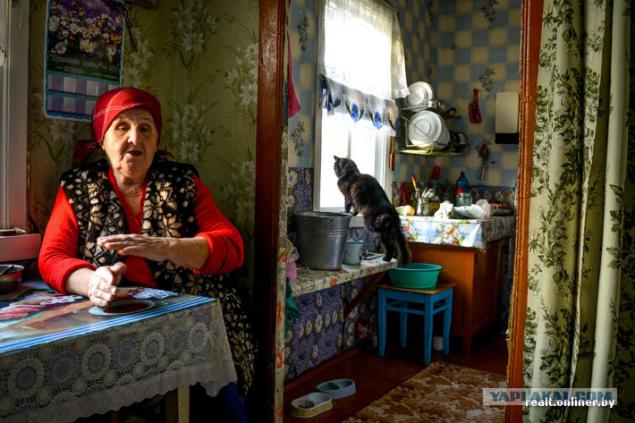
13
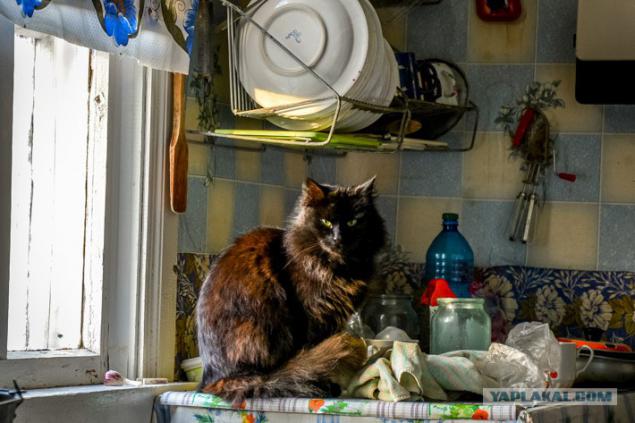
- There were large gardens, many houses, in every yard - the floor, svirny ... But trouble came with the Germans, - she said. - Here partisans in the forests lived, and hence are often fired. Time was terrible. Us and bombed and burned, the horror that happened!
I remember sleeping in the early morning, above the village of German aircraft flying in one direction sweep - throw a bomb in the other - a machine gun chatters. On the street winter, and we, kids, small, bare, barefoot, running through the snowdrifts in the forest. Only a little rundown, the plane directly overhead, no higher than the roof of the house, flies and shoots. Missed. But the two men bomb exploded.
On another occasion, the Germans came to take away the cows, the guerrillas found out about it, got into a fight. I am with fear climbed on the stove, and then the bullet - "Whack" next, in millimeters from the back literally. I was not hurt, but the dress that my mother sewed of sheets, broken - a tiny hole entrance and exit - the fabric is torn to shreds. Breaking means. But the worst came later: the Germans call for backup, and killed everyone who was in the village - 47 people. Some people literally cut to pieces with swords. Woman one 17 years burned alive at the stake. And all the house burned. For a long time after that, we lived in the forests and swamps.
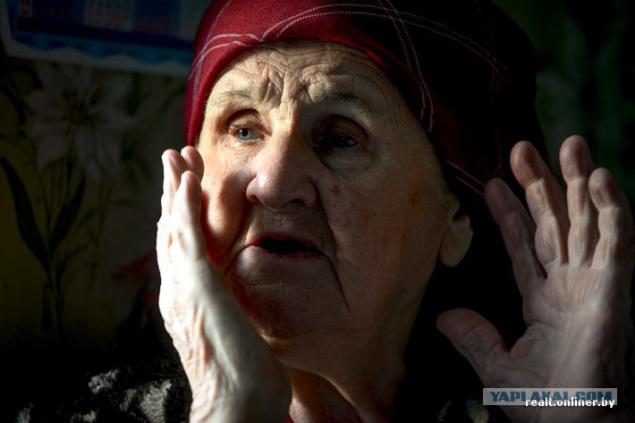
Then, as the Germans drove, came back. Only the charred embers around. Lived in dugouts. As the war ended, began to build the house. I was 14 years old, his older brother - 16, the youngest - 10. My mother died of starvation. We had lice on - beyond words. Zacherpnesh hand under his arm - a dozen just get one. For us, the three orphans, built a cabin - as tall as an adult height of neobstrugannyh logs. Until now, a couple of huts in the village with the time left, are falling apart.
Grandma Zina showed us one of these houses.
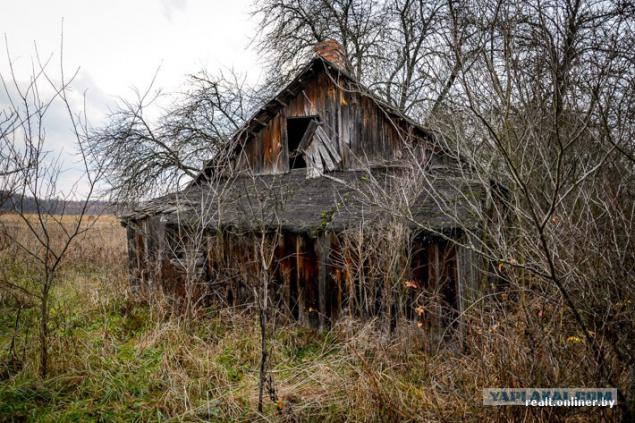
- Is placed in this house stove, two beds and a table. The roof was covered with bark and straw. So this first wind and scattered straw. Rain go - we hide under the table because the water flows in the home, on the street. Food mined as you want. Stealing potatoes on a collective farm field, it happens sometimes.
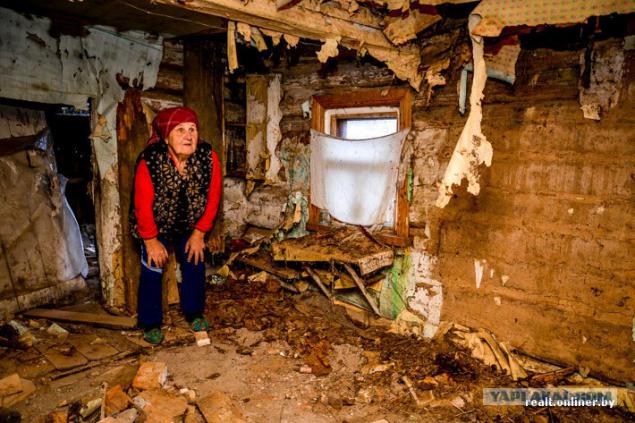
17
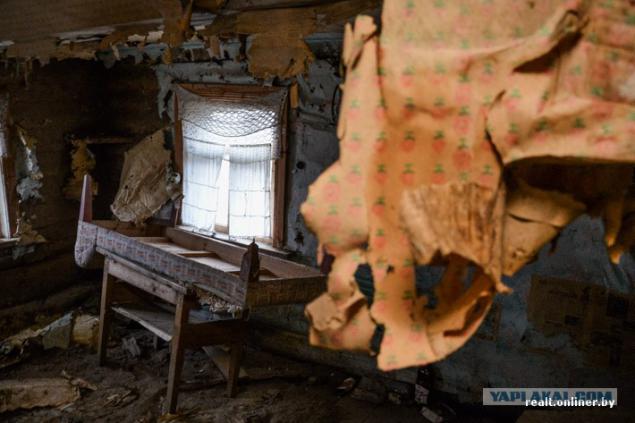
18
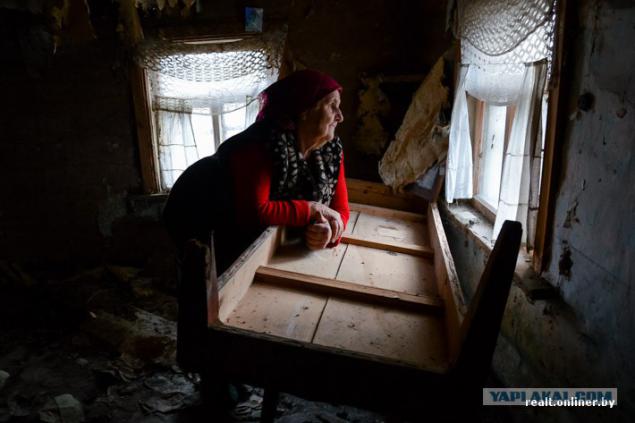
Grandma Zina had three children, two sons and her husband had already buried. Daughter helps regularly calls to Minsk live. Yes, but do not want to have to take up the old woman to the benefits of civilization. Says, when children go to work, stay alone in four walls and laze no forces are not present.
The last of the Mohicans
A few kilometers from the French Rowing Rowing Zafrantsuzskaya worth. The picture is the same: empty houses, some with padlocks to tear meat - looters tried. In one of the huts is worth little man. Smoke, squinting sighted, considering the unexpected guests.
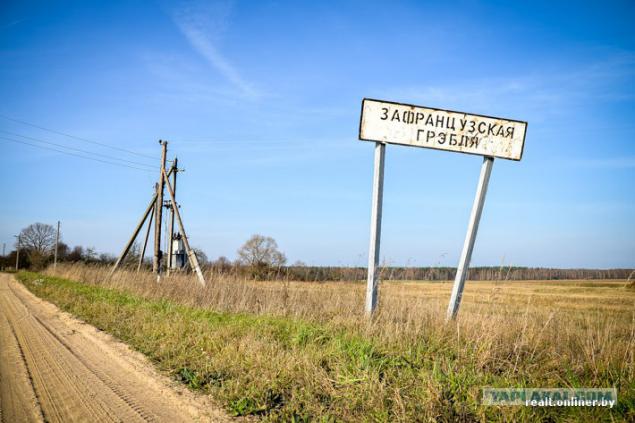
20
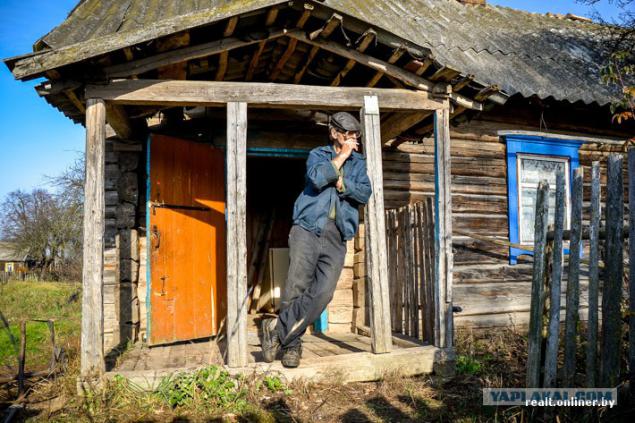
21
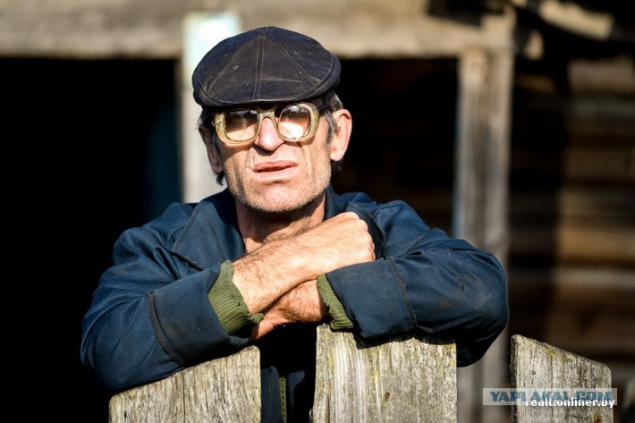
- Where are the locals find - We ask.
- And we will be local - he answers. - Who will call the hostess.
Out into the yard smiling woman, Valentina. Wipes red, cracked from working hands on a rag. Confirms: "natives" in the village is almost gone. The hosts for the most part were dead, some left.
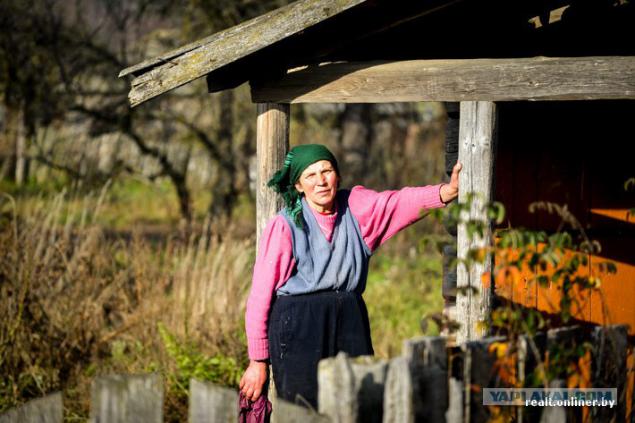
- Here was a house here was standing there, and there. See the ruins? It was also a hut - shows on both sides Valentine. - The village was very big. Before the war, the French and Zafrantsuzskaya Rowing practically merged, but the Germans burnt. Now the village three kilometers separates the fields, and what you see around you - all that is left ... And before every town in the district had a name, it's like neighborhoods in the city.
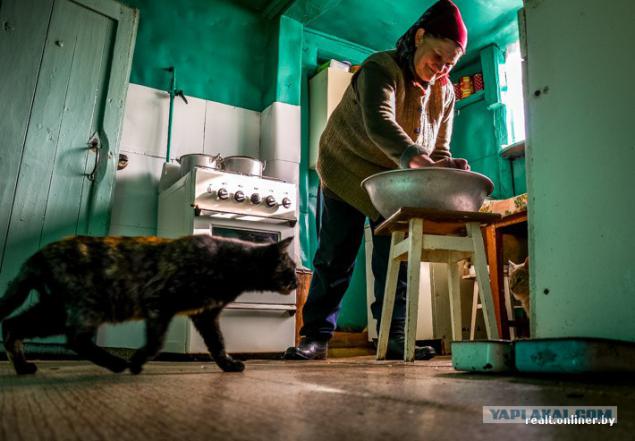
24
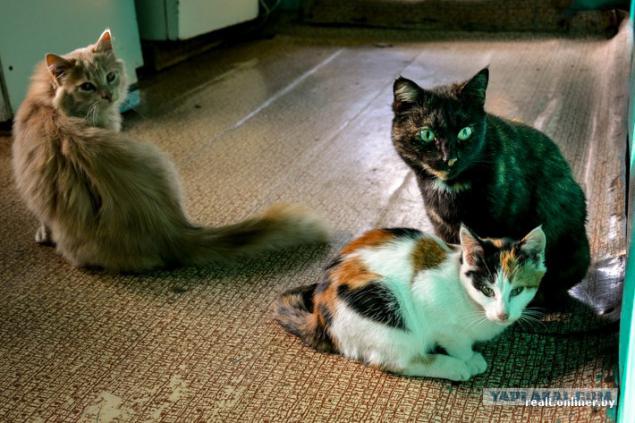
There was located far clericalism and Popovskiy forest, near - YUSHKEVICH forest. On the other hand - Kuranyi, there are also people lived. Here Fabrikov lived, and the place was called "Factory", followed by standing houses - gene, which, of course, was the owner of Gene. Near Cherry, inhabited Vishnevskaya. People here grow into the earth for generations, the places where they lived, we can say, from time immemorial parents names were called.
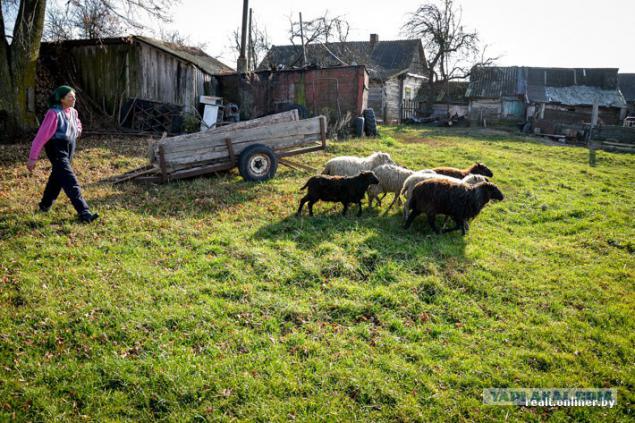
I remember as a little on the rowing I often went - it was a causeway across the marsh, at its base lay in neat rows tree trunks. And I can tell you, despite the fact that this road was already 100 years old, it is well served its purpose - until the asphalt road nearby is not paved, but rowing and enjoyed by all.
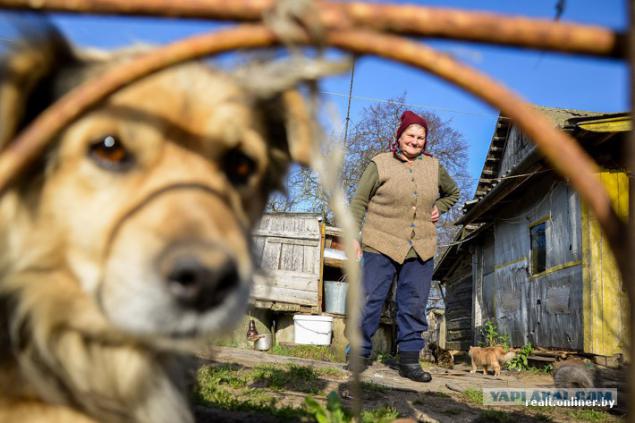
Valentine shows his farm, it has got from their parents - 2 cows, 2 boar, 10 sheep, turkeys, chicken:
- When my mother died, moved here permanently, for wildlife watching.
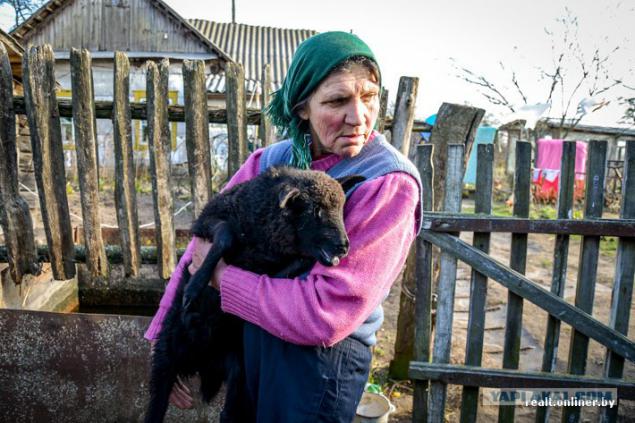
28
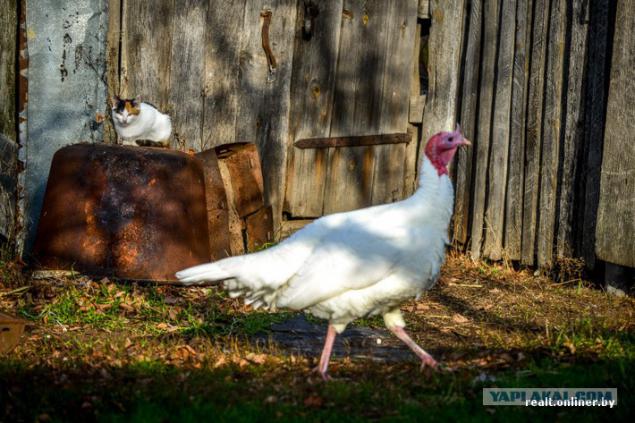
29
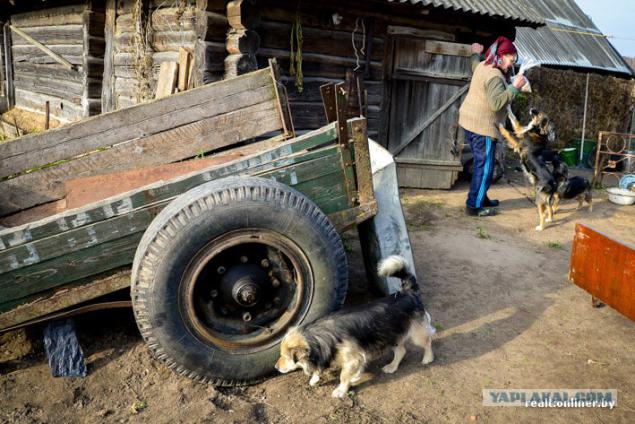
- Who is the brother arrived, familiar, and in the winter I do live here alone - says Valentine. - Not a bit scary. Sin on local authorities will not - the road from snow brush regularly, autobench also twice a week to arrive. However, last winter as large storms were us from "civilization" for three days cut. Already started to worry, and then see - goes grader breaks.
This summer, in the French village of Rowing and Canoeing Zafrantsuzskaya wanted to cancel the bus. What is the meaning of public transport to travel to the wasteland where living out his life a few old men? In French Rowing now resides two old ladies in Zafrantsuzskoy - and at one pensioner.
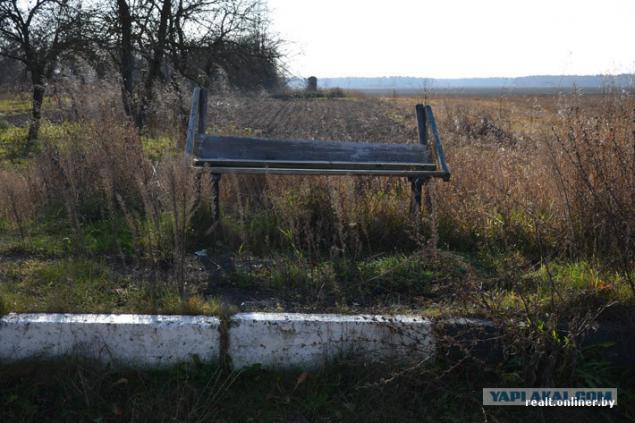
- I'm calling the Director carpool, say, let's dig a pit, back home in his sgarnem and smooth to the eye not Calluses - outraged Valentine. - But all the same bus we have won a ... While strong enough, I'll pull. There will be no - hang the lock on the door and leave. Immediately thereafter Zafrantsuzskaya Boating and die.
source
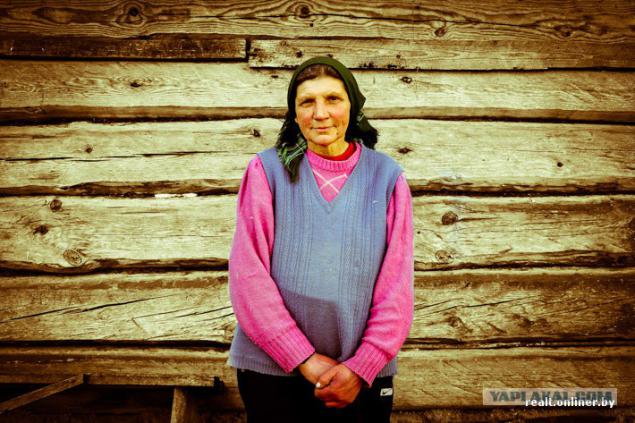
Source:
Now, these villages are picturesque, but frankly pathetic. In each of them there was one street where several houses inhabited diluted sad sight of rows of abandoned huts. But if you look closely, you can see the details, reminiscent of the life that is here once in full swing: a broad road that leads to nowhere, abandoned orchards here and there growing in the open field, rare, overgrown grass foundations.
And there are a lot of cats. A lot.
31 photos and text

02

03

04

Cottagers
Near one of the houses, painted with fresh paint, with a front garden, it is worth a few rows of hives. The plot is "tweaked" to shine - live here "gardeners". We were out the hostess, Olga Antonovna, invites the hut and tells where the village there was such an unusual name.

- The street that runs in front of our house, and there is that the French rowing, which is named in honor of the village - Olga Antonovna. - Here, in 1812, was a Frenchman, and he had to run through the swamp causeway, or in Belarusian - rowing. Managed to build five kilometers, the road was good, and the name stuck.
The village used to be a big, now here are mostly vacationers live. Here we are, for example, come to the family home for the summer, and in winter back - to Minsk. But, on the other hand, I was born in this village. So, we can say, spot. The first memories of childhood float - a lot of people and animals. Just behind our vegetable garden, where the field now, were three calf house and stables.

07

08

My grandfather and grandmother that lived here before the arrival of Soviet power were considered rich. Each had 30 acres of land. My mother, in a village house, even worked as a hired maid. That's how people lived, worked, and leave the village anyone had not occurred.
Olga Antonovna takes us on a wide straight as an arrow, road shows - that is, rowing. In the distance, reviving deserted landscape, haunting little man with a metal detector. Black archaeologists in recent years in the village of frequent visitors - looking for the remains of the splendor of Napoleon's army.

10

11

Summer Resident, a native of the French Rowing, sighs: "In 20-30 years, the village has no expectations. The remaining 70 grandmothers far, would not they, and all ... Maybe turn this place into a village, where for the season will come to Minsk residents. Now here many homes - those that stronger - already bought. But it is, as they say, is another story ».
Children of War
- The village that existed before the French. I am 80 years old, my parents are here, grandfathers, great-grandfathers - says grandmother Zina. - Previously, it somehow differently named, but no one really knows how now - French Rowing. As the war began, I was 10 years old, I remember everything.
Grandma Zina recalls the history of his homeland, sitting in the kitchen in a small cozy hut, which stands on the outskirts of the village. As soon as she finished a big deal - chopped 2 trailer for the winter firewood, all the autumn had to spend on it. To celebrate, melted bath, warm up, so journalists, walk along the main street half a day, did not immediately noticed.

13

- There were large gardens, many houses, in every yard - the floor, svirny ... But trouble came with the Germans, - she said. - Here partisans in the forests lived, and hence are often fired. Time was terrible. Us and bombed and burned, the horror that happened!
I remember sleeping in the early morning, above the village of German aircraft flying in one direction sweep - throw a bomb in the other - a machine gun chatters. On the street winter, and we, kids, small, bare, barefoot, running through the snowdrifts in the forest. Only a little rundown, the plane directly overhead, no higher than the roof of the house, flies and shoots. Missed. But the two men bomb exploded.
On another occasion, the Germans came to take away the cows, the guerrillas found out about it, got into a fight. I am with fear climbed on the stove, and then the bullet - "Whack" next, in millimeters from the back literally. I was not hurt, but the dress that my mother sewed of sheets, broken - a tiny hole entrance and exit - the fabric is torn to shreds. Breaking means. But the worst came later: the Germans call for backup, and killed everyone who was in the village - 47 people. Some people literally cut to pieces with swords. Woman one 17 years burned alive at the stake. And all the house burned. For a long time after that, we lived in the forests and swamps.

Then, as the Germans drove, came back. Only the charred embers around. Lived in dugouts. As the war ended, began to build the house. I was 14 years old, his older brother - 16, the youngest - 10. My mother died of starvation. We had lice on - beyond words. Zacherpnesh hand under his arm - a dozen just get one. For us, the three orphans, built a cabin - as tall as an adult height of neobstrugannyh logs. Until now, a couple of huts in the village with the time left, are falling apart.
Grandma Zina showed us one of these houses.

- Is placed in this house stove, two beds and a table. The roof was covered with bark and straw. So this first wind and scattered straw. Rain go - we hide under the table because the water flows in the home, on the street. Food mined as you want. Stealing potatoes on a collective farm field, it happens sometimes.

17

18

Grandma Zina had three children, two sons and her husband had already buried. Daughter helps regularly calls to Minsk live. Yes, but do not want to have to take up the old woman to the benefits of civilization. Says, when children go to work, stay alone in four walls and laze no forces are not present.
The last of the Mohicans
A few kilometers from the French Rowing Rowing Zafrantsuzskaya worth. The picture is the same: empty houses, some with padlocks to tear meat - looters tried. In one of the huts is worth little man. Smoke, squinting sighted, considering the unexpected guests.

20

21

- Where are the locals find - We ask.
- And we will be local - he answers. - Who will call the hostess.
Out into the yard smiling woman, Valentina. Wipes red, cracked from working hands on a rag. Confirms: "natives" in the village is almost gone. The hosts for the most part were dead, some left.

- Here was a house here was standing there, and there. See the ruins? It was also a hut - shows on both sides Valentine. - The village was very big. Before the war, the French and Zafrantsuzskaya Rowing practically merged, but the Germans burnt. Now the village three kilometers separates the fields, and what you see around you - all that is left ... And before every town in the district had a name, it's like neighborhoods in the city.

24

There was located far clericalism and Popovskiy forest, near - YUSHKEVICH forest. On the other hand - Kuranyi, there are also people lived. Here Fabrikov lived, and the place was called "Factory", followed by standing houses - gene, which, of course, was the owner of Gene. Near Cherry, inhabited Vishnevskaya. People here grow into the earth for generations, the places where they lived, we can say, from time immemorial parents names were called.

I remember as a little on the rowing I often went - it was a causeway across the marsh, at its base lay in neat rows tree trunks. And I can tell you, despite the fact that this road was already 100 years old, it is well served its purpose - until the asphalt road nearby is not paved, but rowing and enjoyed by all.

Valentine shows his farm, it has got from their parents - 2 cows, 2 boar, 10 sheep, turkeys, chicken:
- When my mother died, moved here permanently, for wildlife watching.

28

29

- Who is the brother arrived, familiar, and in the winter I do live here alone - says Valentine. - Not a bit scary. Sin on local authorities will not - the road from snow brush regularly, autobench also twice a week to arrive. However, last winter as large storms were us from "civilization" for three days cut. Already started to worry, and then see - goes grader breaks.
This summer, in the French village of Rowing and Canoeing Zafrantsuzskaya wanted to cancel the bus. What is the meaning of public transport to travel to the wasteland where living out his life a few old men? In French Rowing now resides two old ladies in Zafrantsuzskoy - and at one pensioner.

- I'm calling the Director carpool, say, let's dig a pit, back home in his sgarnem and smooth to the eye not Calluses - outraged Valentine. - But all the same bus we have won a ... While strong enough, I'll pull. There will be no - hang the lock on the door and leave. Immediately thereafter Zafrantsuzskaya Boating and die.
source

Source:





